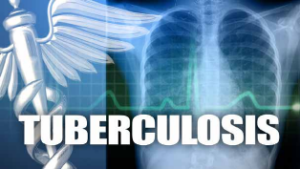
The National Strategic Plan (NSP) for tuberculosis (TB) has put forward the goal to end TB in India by 2025, five year ahead of the targets set by Sustainable Development Goals (SDGs). It is estimated that more than 50 percent of TB patients seek care from private sector in India, and hence, engaging private sector plays an importent role in elimination of Tuberculosis. To reach out to private sector patients, the ‘Universal access to TB care project’ (UATBC) was rolled out in Mumbai as a part of ‘Mumbai Mission for TB Control’, a comprehensive strategy of Municipal Corporation of Greater Mumbai (MCGM).
A project from September 2014 to December 2017, with support from Bill-Melinda Gates Foundation (BMGF) and PATH, was implemented by Mumbai District TB Control Society. It involved a systematic engagement of private doctors, laboratories and retail chemist for early diagnosis and treatment of TB by provision of free services of chest X-ray, GeneXpert testing, anti-TB drugs and Information & Communication Technology (ICT) enabled treatment adherence support. The engagement made it possible to detect more than 60,000 TB patients from private sector over three years. It also gave 78 percent success rates in all patients who were on treatment.

To ensure the sustainability of the project, the donor supported project was transitioned to government supported Private Providers Support Agency (PPSA) with full integration in TB Programme of Mumbai.
Objectives: To sensitise the private sector in STCI (Standard of TB Care India) and to improve notifications of private sector patients by involving private healthcare providers and providing free referral, diagnosis and treatment services to private sector patients.
Intervention: All private sector engagement activities are now undertaken through the Innovative Scheme of PPSA, approved under National Urban Health Mission (NUHM) with support from Revised National TB Control Programme (RNTCP) Partnership Schemes. PPSA is an interface agency to engage the private sector and functional since January 2018 in Mumbai. The complete package of TB services involving free services of chest X-ray for presumptive TB, Sputum /sample Transportation, GeneXpert testing from public sector, daily regimen (Government Fixed Dose Combination (FDC)) for drug sensitive patients along with ICT enabled treatment adherence monitoring through NIKSHAY (online platform for TB patient management) and linking of drug resistant TB patients to public sector for free second line anti TB drugs under the national programme is being provided. These services are offered through ‘Hub & Spoke’ model of private sector engagement with the help of NGO- appointed staff to undertake all field activities related to private sector patients and providers. The District TB officers play an instrumental role in engaging private providers and undertake the responsibility of building relations, organising CMEs and further managing the overall programme, whereas a Public Private Mix Coordinator (PPMC) makes sure that the continuous flow of services is maintained with day-to-day engagement with the provider.

Impact: The programme has been successful in delivering the following services with the help of the two NGOs who have been working as PPSA ; a) 285 formal providers; 1,694 informal providers; 385 hospital and nursing homes, 41 champion doctors, 177 CXR labs and 198 chemists have been linked with PPSA; b) 30,000 CXR and 19,000 CBNAAT tests were given free to private sector patients; c) More than 3,000 doctors were sensitised; d) 11,500 drug sensitive TB patients diagnosed in private sector were initiated on government FDCs; e) 16,000 patients notified and provided with adherence counselling.
This intervention programme led by Municipal Corporation of Mumbai demonstrated a successful model which is now being adopted to scale up private sector engagements in many States of the country and has changed the way private sector is being approached by the Government for improving the TB care.
Conclusion: Mumbai continues to provide quality free diagnostic and treatment services to private sector TB patients through PPSA. As a result, in 2018, the total TB Notification for Mumbai improved from 269/lakh in 2015 to 421/lakh in 2018.
Tapping private health sector for achieving universal access to TB care in India is achievable, although difficult and PPSA would further be enhancing the capacity to extend services to all private providers to reach out to all TB Patients in Mumbai as a step towards ‘TB Free Mumbai’.
Be a part of Elets Collaborative Initiatives. Join Us for Upcoming Events and explore business opportunities. Like us on Facebook , connect with us on LinkedIn and follow us on Twitter , Instagram.












